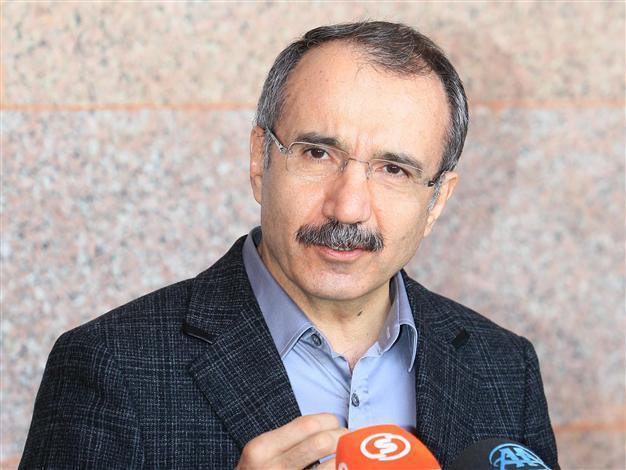EU funds project on human rights classes
ANKARA - Hürriyet Daily News

Minister Dinçer says the overhaul of the curriculum will be an important step toward strengthening human rights. AA photo
The Education Ministry has launched a project to raise awareness among students about democratic citizenship and human rights in cooperation with the European Union, which allocated 9.1 million euros for the effort.Under the project, the authorities will review the school curriculum to put a stronger emphasis on human rights, organize meetings with parents and start initiatives to boost democratic culture in schools. The project will be implemented in 20 pilot schools in 10 provinces, including Istanbul, Mardin and Hatay.
Speaking at a gathering on the occasion yesterday, Education Minister Ömer Dinçer said the overhaul of the curriculum would be an “important step toward strengthening [education on] human rights, democracy and equal opportunity for men and women.”
EU Ambassador Jean-Maurice Ripert said the budget allocated for the project was one of the largest in Europe in this realm. “Teaching democracy and human rights in school is an important part of creating a democratic society,” he said.
Education reform on uphill track
In a separate development, the Education Ministry Undersecretary Emin Zararsız said yesterday that the next school year was set for a challenging start after the controversial education reform passed through Parliament last month.
The authorities, he said, are rushing against time to determine how many children will be enrolled in first grade and ensure that there will be enough classrooms.
Zararsız said the “most important and urgent problem” was the uncertainty surrounding the number of first-graders the law would produce. The reform reduced the school-starting age from 72 to 60 months but officials have yet to decide the details.
“The [education] minister has indicated that children aged between 60 to 66-67 months could be enrolled with their parents’ consent, and that those between 67-68 to 72 will be definitely enrolled,” Zararsız said, adding that “no final decision has been made.” If all are enrolled, there will be 1,250,000 new students, he said.
Zararsız also said separating primary and middle schools would be impossible in small settlements which lack multiple school buildings. The ministry plans two-shift education in small places, with middle school students attending classes in the morning, and primary school students having classes in the afternoon, he said.
Zararsız said the Cabinet held the option of postponing the introduction of the new system by one year, but preparations were being made to have it in place for the 2012-2013 school year.
















